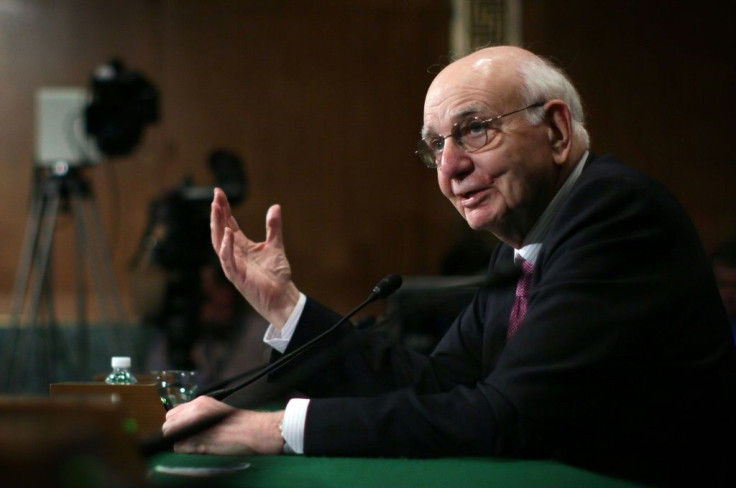Former Fed Chairman And Inflation Fighter Paul Volcker Dies

Paul Volcker, the former Federal Reserve chairman who defeated inflation during the Reagan administration, has died in New York. He was 92.
Volcker died on Sunday.
In a career that extended more than 50 years, Volcker made a comeback in 2008 to respond to the collapse of the housing market resulting in the Volcker Rule, a regulation that generally prohibited banks from engaging in certain risky activities like making speculative investments on their own account.
Volcker’s rule was included in the 2010 Dodd-Frank law – although by that point the rule had been diluted. Banks vociferously criticized the rule, citing it would hurt their business.
“Paul Volcker, by his own admission, has said he doesn’t understand capital markets,” Jamie Dimon, CEO at JPMorgan Chase & Co., told Fox Business News in 2012. “Honestly, he has proven that to me.”
The Volcker rule took effect in July 2015, but President Donald Trump has since demanded regulators weaken it.
A generally frugal man, Volcker generally disdained most modern complex financial products like credit default swaps.
Born to German immigrants in New Jersey, Volcker received a bachelor’s degree from Princeton University in 1949 and a master’s degree in political economy and government from Harvard University in 1951. He began his career as an economist in 1952 at the Federal Reserve Bank of New York.
By 1969, after departing Chase Bank, he became the U.S. Treasury’s undersecretary for monetary affairs in the Nixon administration. In that position, he helped to create a new monetary system that would replace the gold standard of the Bretton Woods system.
President Jimmy Carter named Volcker as Federal Reserve chief in 1979 where he focused on fighting inflation.
“The challenge was very clear when I was there: You’ve got an inflation problem and it was getting out of hand,” Volcker said in 2006. “And the country knew that something was the matter. There was unhappiness with the economy. That is a situation in which you can act.”
In October 1979, Volcker began taking steps to tamp down inflation by, among other things, pushing up interest rates to as high as 12% -- they eventually spiked to 20%.
“We were ‘lashed to the mast’ in pursuit of price stability,” Volcker wrote. “Did I realize at the time how high interest rates might go before we could claim success? No.”
While inflation eventually came down, Volcker was widely criticized for high interest rates, rising unemployment and a recession. He resigned from the Fed in 1987.
“He came to represent independence,” former Fed chief Ben Bernanke said. “He personified the idea of doing something politically unpopular but economically necessary.”
William Poole, former president of the St. Louis Federal Reserve, wrote of Volcker in 2005: “Without his bold change in monetary policy and his determination to stick with it through several painful years, the U.S. economy would have continued its downward spiral. By reversing the misguided policies of his predecessors, Volcker set the table for the long economic expansions of the 1980s and 1990s.”
© Copyright IBTimes 2025. All rights reserved.





















